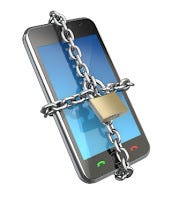Police in Mass. can search your cell phones without a warrant.

The state’s highest court ruled today that police in Massachusetts do not necessarily need a search warrant to look at the call list of a person’s cellphone when searching personal property following an arrest.
But in two rulings involving the arrest of suspected drug dealers by Boston police, a unanimous Supreme Judicial Court said it would decide at another time whether people had constitutional rights to privacy for other cellphone contents, such as texts and e-mails.
However, the Court in Commonwealth v. Phifer emphasized that the ruling is narrow and fact-specific. Different facts, a more invasive search, or a more complex phone could result in a different outcome, said the Massachusetts high court.
“Today’s cellular telephones are essentially computers, capable of storing enormous quantities of information, personal, private, and otherwise, in many different forms,’’ Justice Margot Botsford wrote for the court.
Botsford wrote that the court was leaving “open for another day questions concerning whether, when a cellular telephone is validly seized incident to arrest, it may always, or at least generally, be searched without a warrant, and, if so, the permissible extent of such a search.”
It was the first time the court had addressed the issue of the privacy of cellphone contents. The issue is being scrutinized by other courts across the country.
The court ruled that police had the right to examine the call list of Demetrius A. Phifer’s cellphone when they arrested him in East Boston on July 11, 2011, after they allegedly saw him get into a car with a known drug user and make what seemed to be a drug deal.
The SJC said that police pulled over the drug user’s car, got his cellphone number, and checked it against the cellphone they had seized from Phifer after his arrest. Police found the drug user’s number on Phifer’s call list, the court said.
Boston Municipal Court Judge Robert Ronquillo Jr. ruled that police acted within their legal authority because police have long been allowed to hunt for evidence of a crime from the person and their belongings when they are booking someone at the police station.
The SJC said today that Ronquillo was correct.
“The limited search of the recent call list on the defendant’s cellular telephone was permissible under both the Fourth Amendment and Article 14’’ of the state’s Declaration of Rights, Botsford wrote.
The Supreme Judicial Court issued a similar ruling in a contemporaneous companion case, Commonwealth v. Berry. In a previous Massachusetts case in which EPIC filed a "friend of the court" brief, the Supreme Judicial Court ruled that sensitive data obtained from GPS tracking requires a search warrant.
http://www.boston.com/metrodesk/2012/12/05/sjc-police-can-make-limited-search-cellphone-call-lists-following-arrest/0wJwF8dQtIJWkeYOetyyVM/story.html


